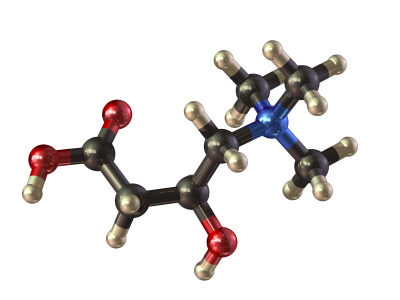In April 2013, a study was published in Nature Medicine that raised concerns about the increased risk of heart disease from L-carnitine. Titled “Intestinal microbiota metabolism of L-carnitine, a nutrient in red meat, Promotes atherosclerosis“, researchers based at the Cleveland Clinic in Ohio created great controversy with their claims.
Weaknesses of the study1) Not based on human clinical trials.The study was done on mice, not humans. Studies on laboratory mice can be useful for identifying mechanisms and processes that may occur in humans. However, the conclusions drawn from this study have been generated from a completely different organism and thus cannot be confirmed.
2) Cholesterol and heart attack risk.
Several large human studies, most recently in 2011, have repeatedly demonstrated that the often cited link between consuming cholesterol-containing foods and heart attacks is incorrect.
3) Data from the study inconsistent and incomplete
Nutrition expert Dr. Chris Masterjohn has criticised the incomplete data in the study design and identified very wide leaps in logic. Even an earlier study by the same authors has shown that choline salts from the study would differ significantly from choline concentrations in diet2. Ignoring the fact that choline stimulate TMAO is a major flaw in interpreting the results from this study.
4) TMAO is formed not only from meat but from many foods
Red meat is only one of a wide range of foods that elevate TMAO when eaten. Results from a 1999 study3 that assessed TMAO excretion after consuming 46 different foods, revealed that red meat produced no more TMAO than vegetables and fruits. In fact, there were some vegetables, such as cauliflower, peas and carrots that produced more TMAO than beef did. Some of the common TMAO producing healthy foods include:
- Tomatoes
- Potatoes
- Pineapple
- Oranges
- Carrots
- Peanuts
- Peaches
- Apples
One of the most interesting results from this 1999 study was that a fish-rich diet led to a significant increase in TMAO. One of the extreme examples is halibut. This fish was shown to generate 107 times more TMAO than red meat!4
5) Study contradicts 40 years of research experience.
Over the past four decades there has been a considerable amount of research into the nutritional and metabolic functions of L-carnitine. This research includes detailed short-term and long-term studies. Throughout all these studies, there have been no reported serious side effects. L-carnitine is therefore considered a very safe nutritional supplement.
With so many assumptions and flaws in the design and execution of the study by Hazen et al, it’s not surprising this research has been met with significant criticism. Despite the researchers’ claims, there’s insufficient evidence to conclude that L-carnitine can increase the risk of arteriosclerosis.
References
- “Hazen, Koeth et al, “Intestinal microbiota metabolism of L-carnitine, a nutrient in red meat, Promotes atherosclerosis”, Nature Medicine (2013), April; 19, 576-585.” ↩
- “Mercola, “Will eating meat really increase your risk of heart attack?”, April, 2013. http://articles.mercola.com/sites/articles/archive/2013/04/22/eating-red-meat.aspx” ↩
- “http://www.nature.com/nm/journal/v19/n5/full/nm.3145.html” ↩
- “Zhang, Mitchell and Smith, “Dietary precursors of trimethylamine in man: a pilot study” Food Chem Toxicol, (1999) May;37(5):515-20. http://www.ncbi.nlm.nih.gov/pubmed/10456680” ↩





